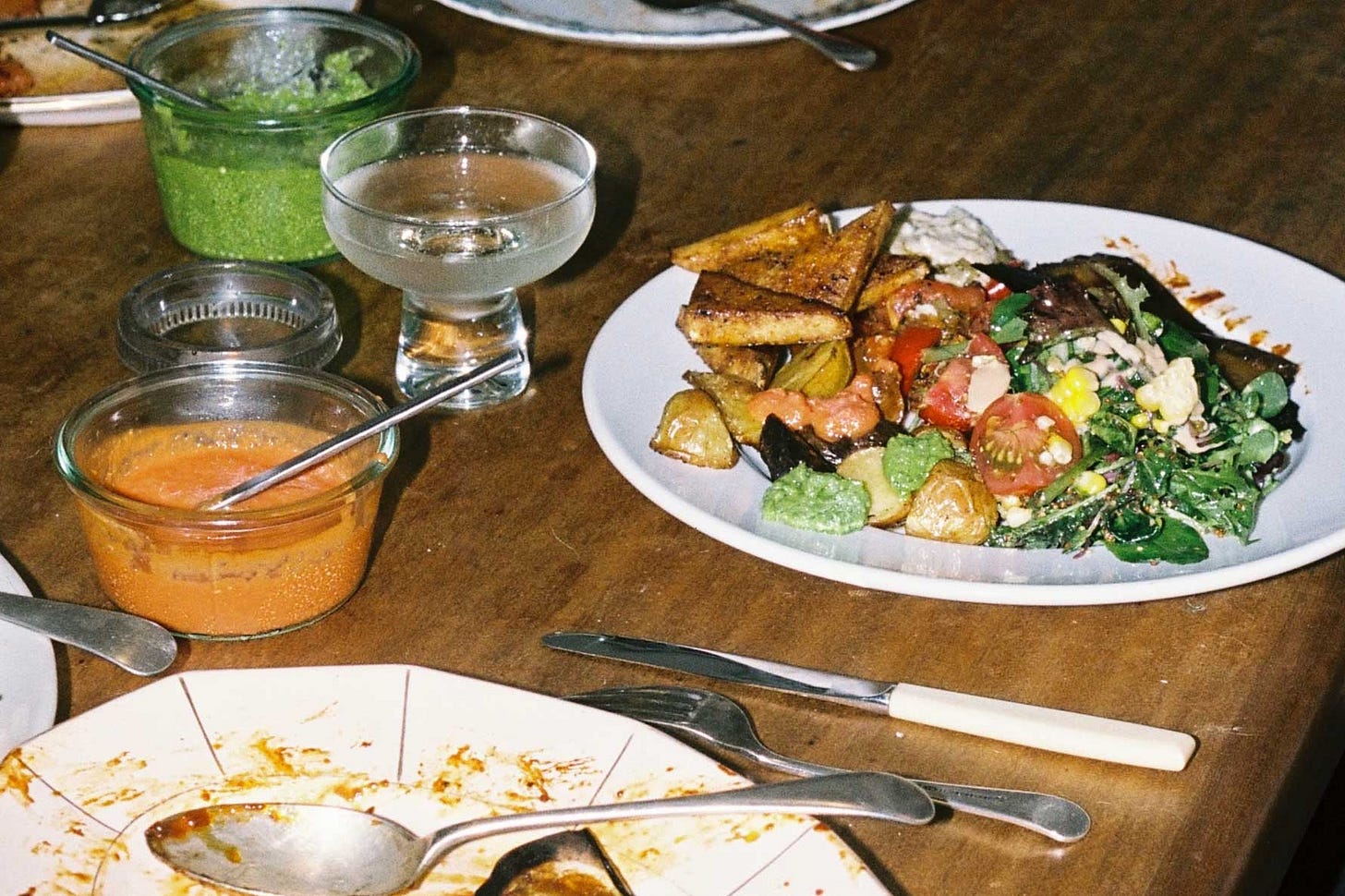This is our January 2023 Kitchen Talk. We publish this newsletter every last Tuesday of the month.
Over the last few years, having noticed several prominent vegan influencers we had followed for years reversing their diets and re-incorporating animal foods, we began questioning whether the “vegan” diet was all hype and now over, the influencers were moving onto the next trend. Some justified their dietary changes with recurrent health issues, or a desire to cook more conventionally, others a need to accommodate their partner or child's habits. Audience reactions were, obviously, mixed. Some encouraged the change, while some followers were lost.
Consider mainstream media and the language used in journalism, in general, to discuss vegan or plant-based diets. There is very much a focus on negative feelings associated with loss—losing food, health, enjoyment and so on. But is it really? For us, it feels different from what we perceive online. Science and our experience has taught us otherwise. It was this which prompted us to share what eating plants bring to us and still does. What it could bring in an era of climate emergency, that perhaps eating more plants is an invitation to imagine a new food system, one that is more equitable, and where we actually prioritise public health above profits. So why is it so difficult to change the way we eat?







